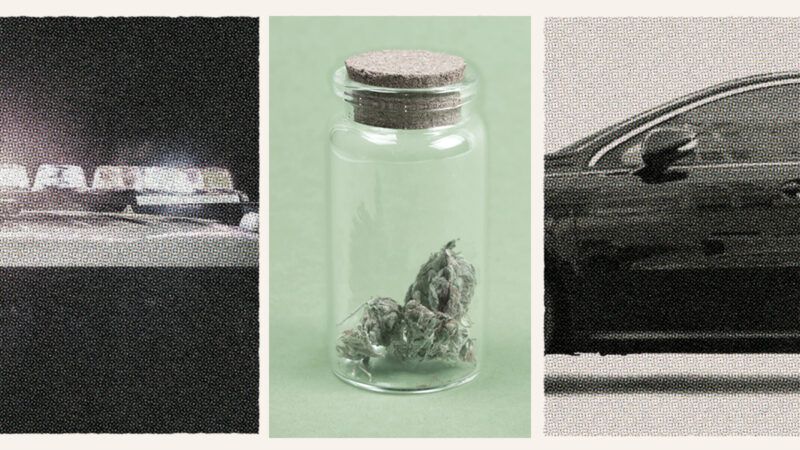Cops With Super Sniffers Fool No One Except the Judge
Iowa officers detect less than one gram of marijuana, 100 yards away, in a closed container in a moving car.

K-9 units faced some competition from human crime sniffers in Des Moines, Iowa, after three officers claimed olfactory prowess during a traffic stop on October 5, 2019. Court documents from the U.S. Court of Appeals for the 8th Circuit revealed that the officers claimed to detect marijuana while driving behind the defendant, Vernon Shumaker.
The officers testified that they detected less than one gram of marijuana in a closed container coming from a moving car, a football field's length away, while a hefty breeze cut across traffic. They supposedly picked up the scent of burning marijuana through the open windows of their patrol car and pinpointed the source to a specific vehicle, two cars ahead of them.
Officers insisted "without a shadow of a doubt" that the whiff gave them probable cause to stop the car. They discovered a few unlit marijuana blunts stashed in a covered ashtray. They also found a gun, leading to Shumakers' arrest for being a felon and drug user in possession of a firearm.
Prosecutors had what they needed for conviction, though they faced one small hurdle, the Fourth Amendment. Officers must have probable cause before they conduct searches and seizures. Yet when Shumaker filed a motion to suppress evidence—based on the limits of human noses—the district court sided with the officers. The 8th Circuit upheld the ruling on December 29, 2021.
Courts are the bulwark of civil rights. Citizens need an engaged judiciary that puts the government to its burden. Yet too often, courts bend over backward to justify officers' testimony, no matter how implausible—even when government officials have clear conflicts of interest.
Iowa law enforcement agencies routinely use traffic enforcement to generate revenue through a money making scheme called civil forfeiture. When officers seize cash and other valuables, civil forfeiture forces property owners to file affidavits and pay legal fees to recover their assets—even when they are innocent of wrongdoing.
Costs often outweigh the value of seized items, prompting many property owners to walk away. Despite reforms that the Iowa Legislature passed in 2017, some motorists permanently lose assets without ever being arrested or charged with a crime. Police and prosecutors keep 100 percent of those assets.
"Policing for Profit," a 2020 report from the Institute for Justice, shows that civil forfeiture generated more than $100 million for Iowa law enforcement agencies in the last two decades.
That's a strong financial incentive for aggressive traffic patrols. The Special Enforcement Team within the Des Moines Police Department, which picked up Shumaker, specializes in seizures, and one team member even testified that they make "as many stops as possible."
It's no surprise that an entire cottage industry has sprung up around this practice. The director of the Smell and Taste Center at the University of Pennsylvania Medical Center testified on Shumaker's behalf, stating that the government's case reeked of misconduct. The prosecution followed up with their own expert witness from Desert Snow, a multi-million dollar company that trains cops on civil forfeiture proceedings, who claimed that humans can do amazing things with their noses so long as they have the proper "training and experience." And this assertion was good enough to pass judicial review.
Passive judges who accept government arguments without rigorous scrutiny are corrosive to the Constitution. Clearly something is rotten in law enforcement and the courts can't seem to smell it.



Show Comments (30)